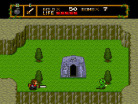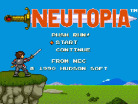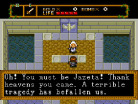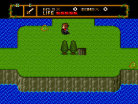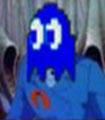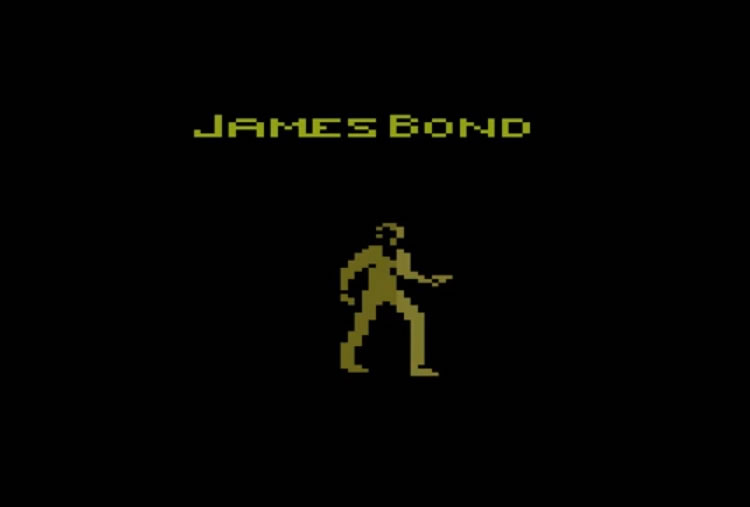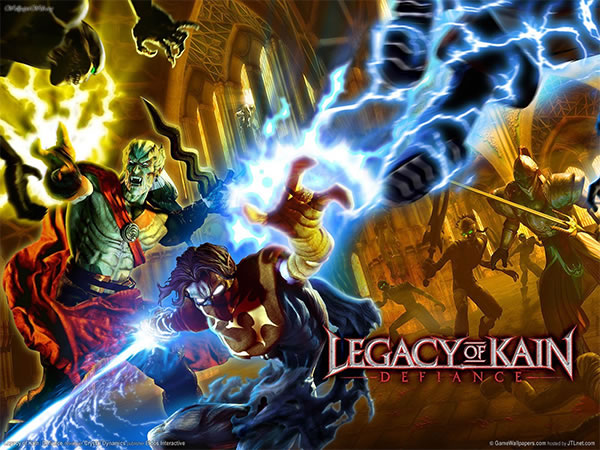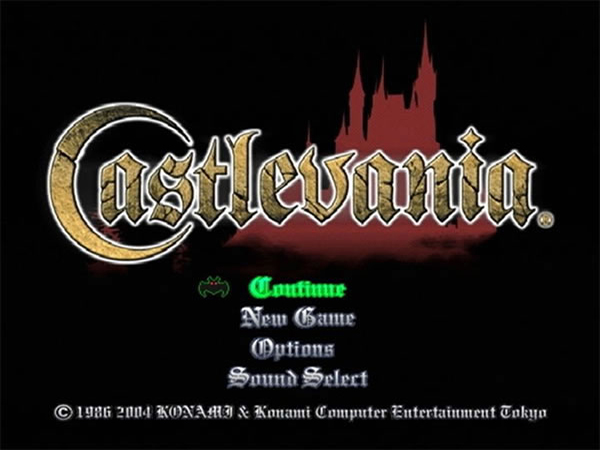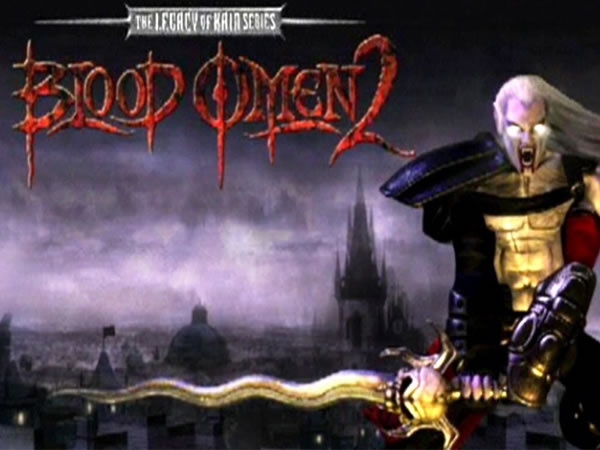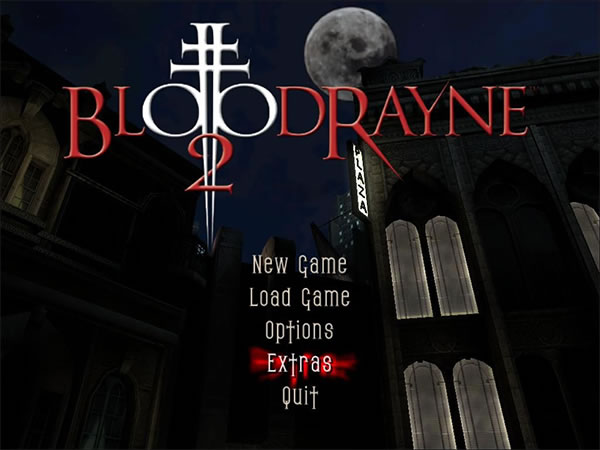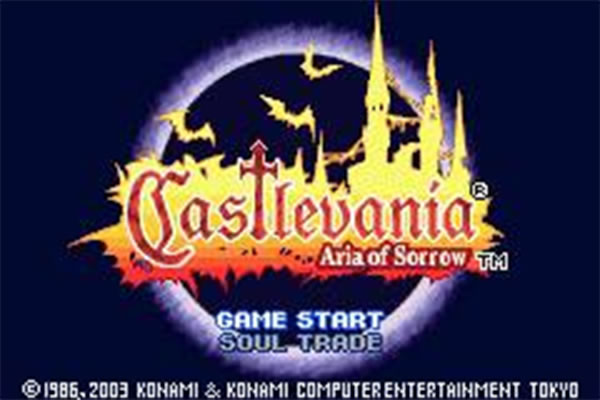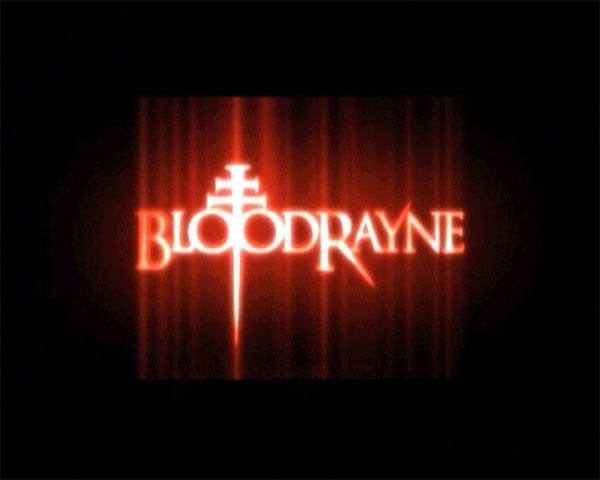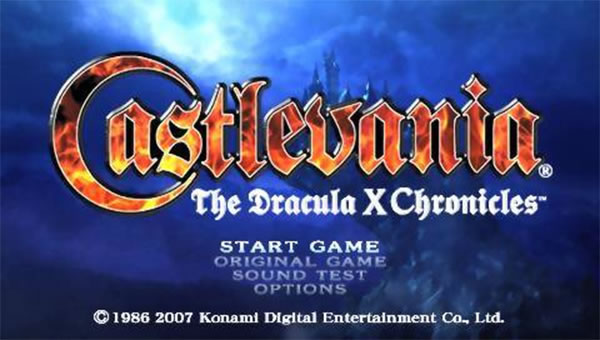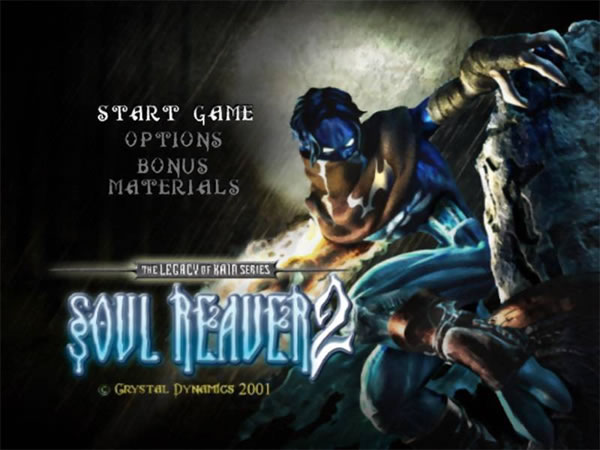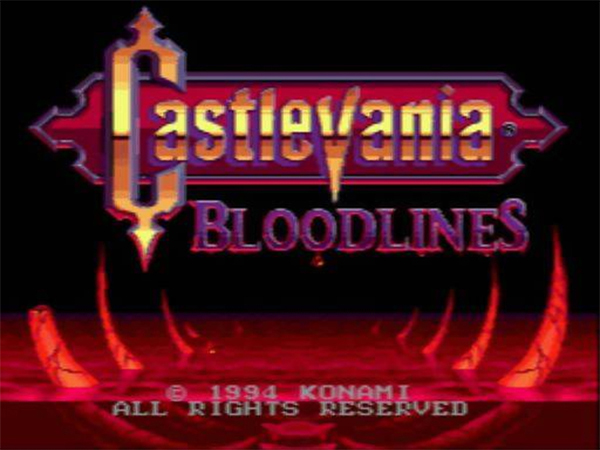- CLASSIC MAGAZINES
- REVIEW CREW
A show recapping what critics thought back
when classic games first came out! - NEXT GENERATION'S BEST & WORST
From the worst 1-star reviews to the best
5-stars can offer, this is Next Generation! - NINTENDO POWER (ARCHIVE)
Experience a variety of shows looking at the
often baffling history of Nintendo Power! - MAGAZINE RETROSPECTIVE
We're looking at the absolutely true history of
some of the most iconic game magazines ever! - SUPER PLAY'S TOP 600
The longest and most ambitious Super NES
countdown on the internet! - THEY SAID WHAT?
Debunking predictions and gossip found
in classic video game magazines! - NEXT GENERATION UNCOVERED
Cyril is back in this spin-off series, featuring the
cover critic review the art of Next Generation! - HARDCORE GAMER MAGAZING (PDF ISSUES)
Download all 36 issues of Hardcore Gamer
Magazine and relive the fun in PDF form!
- REVIEW CREW
- ELECTRONIC GAMING MONTHLY
- ELECTRONIC GAMING MONTHLY RANKS
From Mario to Sonic to Street Fighter, EGM
ranks classic game franchises and consoles! - ELECTRONIC GAMING MONTHLY BEST & WORST
Counting down EGM’s best and worst reviews
going year by year, from 1989 – 2009! - ELECTRONIC GAMING BEST & WORST AWARDS
11-part video series chronicling the ups and
downs of EGM’s Best & Worst Awards!
- ELECTRONIC GAMING MONTHLY RANKS
- GAME HISTORY
- GAME OVER: STORY BREAKDOWNS
Long-running series breaking down game
stories and analyzing their endings! - A BRIEF HISTORY OF GAMING w/ [NAME HERE]
Real history presented in a fun and pithy
format from a variety of game historians! - THE BLACK SHEEP
A series looking back at the black sheep
entries in popular game franchises! - INSTANT EXPERT
Everything you could possibly want to know
about a wide variety of gaming topics! - FREEZE FRAME
When something familiar happens in the games
industry, we're there to take a picture! - I'VE GOT YOUR NUMBER
Learn real video game history through a series
of number-themed episodes, starting at zero! - GREAT MOMENTS IN BAD ACTING
A joyous celebration of some of gaming's
absolute worst voice acting!
- GAME OVER: STORY BREAKDOWNS
- POPULAR SHOWS
- DG NEWS w/ LORNE RISELEY
Newsman Lorne Riseley hosts a regular
series looking at the hottest gaming news! - REVIEW REWIND
Cyril replays a game he reviewed 10+ years
ago to see if he got it right or wrong! - ON-RUNNING FEUDS
Defunct Games' longest-running show, with
editorials, observations and other fun oddities! - DEFUNCT GAMES QUIZ (ARCHIVE)
From online quizzes to game shows, we're
putting your video game knowledge to the test!- QUIZ: ONLINE PASS
Take a weekly quiz to see how well you know
the news and current gaming events! - QUIZ: KNOW THE GAME
One-on-one quiz show where contestants
find out if they actually know classic games! - QUIZ: THE LEADERBOARD
Can you guess the game based on the classic
review? Find out with The Leaderboard!
- QUIZ: ONLINE PASS
- DEFUNCT GAMES VS.
Cyril and the Defunct Games staff isn't afraid
to choose their favorite games and more! - CYRIL READS WORLDS OF POWER
Defunct Games recreates classic game
novelizations through the audio book format!
- DG NEWS w/ LORNE RISELEY
- COMEDY
- GAME EXPECTANCY
How long will your favorite hero live? We crunch
the numbers in this series about dying! - VIDEO GAME ADVICE
Famous game characters answer real personal
advice questions with a humorous slant! - FAKE GAMES: GUERILLA SCRAPBOOK
A long-running series about fake games and
the people who love them (covers included)! - WORST GAME EVER
A contest that attempts to create the worst
video game ever made, complete with covers! - LEVEL 1 STORIES
Literature based on the first stages of some
of your favorite classic video games! - THE COVER CRITIC
One of Defunct Games' earliest shows, Cover
Critic digs up some of the worst box art ever! - COMMERCIAL BREAK
Take a trip through some of the best and
worst video game advertisements of all time! - COMIC BOOK MODS
You've never seen comics like this before.
A curious mix of rewritten video game comics!
- GAME EXPECTANCY
- SERIES ARCHIVE
- NINTENDO SWITCH ONLINE ARCHIVE
A regularly-updated list of every Nintendo
Switch Online release, plus links to review! - PLAYSTATION PLUS CLASSIC ARCHIVE
A comprehensive list of every PlayStation
Plus classic release, including links! - RETRO-BIT PUBLISHING ARCHIVE
A regularly-updated list of every Retro-Bit
game released! - REVIEW MARATHONS w/ ADAM WALLACE
Join critic Adam Wallace as he takes us on a
classic review marathon with different themes!- DEFUNCT GAMES GOLF CLUB
Adam Wallace takes to the links to slice his way
through 72 classic golf game reviews! - 007 IN PIXELS
Adam Wallace takes on the world's greatest spy
as he reviews 15 weeks of James Bond games! - A SALUTE TO VAMPIRES
Adam Wallace is sinking his teeth into a series
covering Castlevania, BloodRayne and more! - CAPCOM'S CURSE
Adam Wallace is celebrating 13 days of Halloween
with a line-up of Capcom's scariest games! - THE FALL OF SUPERMAN
Adam Wallace is a man of steel for playing
some of the absolute worst Superman games! - THE 31 GAMES OF HALLOWEEN
Adam Wallace spends every day of October afraid
as he reviews some of the scariest games ever! - 12 WEEKS OF STAR TREK
Adam Wallace boldly goes where no critic has
gone before in this Star Trek marathon!
- DEFUNCT GAMES GOLF CLUB
- DAYS OF CHRISTMAS (ARCHIVE)
Annual holiday series with themed-episodes
that date all the way back to 2001!- 2015: 30 Ridiculous Retro Rumors
- 2014: 29 Magazines of Christmas
- 2013: 29 Questionable Power-Ups of Christmas
- 2012: 34 Theme Songs of Christmas
- 2011: 32 Game Endings of Christmas
- 2010: 31 Bonus Levels of Christmas
- 2009: 30 Genres of Christmas
- 2008: 29 Controls of Christmas
- 2007: 34 Cliches of Christmas
- 2006: 33 Consoles of Christmas
- 2005: 32 Articles of Christmas
- 2004: 31 Websites of Christmas
- 2003: 29 Issues of Christmas
- 2002: 28 Years of Christmas
- 2001: 33 Days of Christmas
- NINTENDO SWITCH ONLINE ARCHIVE
- REVIEW ARCHIVE
- FULL ARCHIVE
Neutopia
St. Augustine once said that "what is sought with difficulty is discovered with more pleasure" and this is precisely why Neutopia falls short of giving a player the same level of enjoyment that an overhead Zelda game provides. It's just way too easy. While Neutopia captures the basics of The Legend of Zelda series, it does not send you into the blissful fits of frustration that have you resetting your game into the wee hours of the morning.
Like every other review of Neutopia, this one begins with a comparison to Zelda; the similarities cannot be overlooked. This being said, the game should not be punished or belittled simply for imitating a tried-and-true formula. If the format works, why change it? After all, not every turn-based RPG is dubbed a "Final Fantasy clone." Additionally, Neutopia was published two years prior to the release of the groundbreaking Zelda III for the SNES. Countless reviews are quick to say that Neutopia seems most imitative of the third Zelda game, but the timetable does not allow for that accusation. When you factor in the release of the Neutopia sequel (Neutopia II in 1991) and its subtle improvements on the original (including eight-directional movement), you may see that the programmers kept pace with or were actually ahead of the Nintendo curve.
The game's back story of a kidnapped princess, eight hidden medallions, and a need to restore light to the world of darkness is so archetypal and rudimentary that it does not warrant a deep analysis. Princess Aurora has been taken by the evil Dirth, and Jazeta must free her since she is a conduit to the ancient benevolent gods of the land. Since you are not provided with an over-world map, finding the eight medallions may prove difficult and confusing, but there are enough landmarks and strangers with advice to get you through safely.
The first six dungeons are insultingly easy and bosses usually take only one encounter to decipher their patterns. In one such battle, a giant crab scuttles across the screen so slowly that you will find yourself growing impatient waiting for it to open its vulnerable mouth to strike. No matter how intense the music grows, the conflict seems boring and drawn out.
Another drawback to the whole experience is the glut of hidden passages strewn throughout. In many games, secret passages are so few and far between that they are special and coveted discoveries. Here, there are so many breakable walls and caves that their unearthing seems dull and routine. Many of these hidden rooms will lead to obvious or useless advice and so finding them seems more a chore than a blessing. Additionally, you are not supplied with a large enough bomb capacity to find all of the hidden rooms without searching for more explosives. And perhaps the most bothersome thing is that your progress map resets itself whenever you leave a dungeon, thus making all your discoveries invisible once again.
Despite all its shortcomings, the game still warrants a high score based on its size, looks, and good controls. The fire rod weapon is especially fun to wield, and as your life meter increases, so too does its power and range. For every two medallions collected, another world opens up to you and the new landscapes, enemies, and music are enough to propel the player to want to unravel the entire world of Neutopia. If you are playing with a console with memory storage, then finishing the game is just a matter of course. If you play on a non-CD based TurboGrafx16, you will need to carefully transcribe long, case-sensitive passwords. One letter off, however, and you may give up on the whole experience.
There are a few head-scratching moments in this game that deserve some quick mention. Early on, you meet an old man in a cave who calls himself "the monk of the Far East." He preaches his "life giving religion of Allahbaba" which makes one wonder if this game (like Square's Gaia series) is based on earthly folklore. Is this a reference to Islam with the almighty Allah as the provider of life? It may be just a throwaway line, but only a few screens later you are faced with a dungeon boss made of metal with a hard-to-miss Star of David emblazoned on his chest. Perhaps the programmers simply placed the emblem of Judaism just to liken the boss to a golem, a mythical Jewish creature created from inanimate materials. But when you couple the Allahbabba man with the golem battle, you may wonder if there is a minor holy war going on in this game.
Another curious moment happens near the end when an old woman wishes you good luck before the final confrontation with Lord Dirth. She say, "May the force be with you, oh brave one!" The programmers must have figured that if they were going to rip off one of the most recognizable game franchises, they might as well downright plagiarize the most recognizable line from the Star Wars saga. The perceptive gamer may then note that the dark-armored final boss, "Dirth", is only one letter away from "Darth" and that the men behind Neutopia were rather shameless in borrowing from various sources.
Some folks are so desperate for a new Zelda experience that they'll learn how to write code and program their own homebrews. To save yourself time, just buy Neutopia. It will not obsess your thoughts or have you showing up to gaming conference dressed as the brave Jazeta, but it will temporarily fill in the gaps waiting for the next Hyrule adventure.
Like every other review of Neutopia, this one begins with a comparison to Zelda; the similarities cannot be overlooked. This being said, the game should not be punished or belittled simply for imitating a tried-and-true formula. If the format works, why change it? After all, not every turn-based RPG is dubbed a "Final Fantasy clone." Additionally, Neutopia was published two years prior to the release of the groundbreaking Zelda III for the SNES. Countless reviews are quick to say that Neutopia seems most imitative of the third Zelda game, but the timetable does not allow for that accusation. When you factor in the release of the Neutopia sequel (Neutopia II in 1991) and its subtle improvements on the original (including eight-directional movement), you may see that the programmers kept pace with or were actually ahead of the Nintendo curve.
The game's back story of a kidnapped princess, eight hidden medallions, and a need to restore light to the world of darkness is so archetypal and rudimentary that it does not warrant a deep analysis. Princess Aurora has been taken by the evil Dirth, and Jazeta must free her since she is a conduit to the ancient benevolent gods of the land. Since you are not provided with an over-world map, finding the eight medallions may prove difficult and confusing, but there are enough landmarks and strangers with advice to get you through safely.
The first six dungeons are insultingly easy and bosses usually take only one encounter to decipher their patterns. In one such battle, a giant crab scuttles across the screen so slowly that you will find yourself growing impatient waiting for it to open its vulnerable mouth to strike. No matter how intense the music grows, the conflict seems boring and drawn out.
Another drawback to the whole experience is the glut of hidden passages strewn throughout. In many games, secret passages are so few and far between that they are special and coveted discoveries. Here, there are so many breakable walls and caves that their unearthing seems dull and routine. Many of these hidden rooms will lead to obvious or useless advice and so finding them seems more a chore than a blessing. Additionally, you are not supplied with a large enough bomb capacity to find all of the hidden rooms without searching for more explosives. And perhaps the most bothersome thing is that your progress map resets itself whenever you leave a dungeon, thus making all your discoveries invisible once again.
Despite all its shortcomings, the game still warrants a high score based on its size, looks, and good controls. The fire rod weapon is especially fun to wield, and as your life meter increases, so too does its power and range. For every two medallions collected, another world opens up to you and the new landscapes, enemies, and music are enough to propel the player to want to unravel the entire world of Neutopia. If you are playing with a console with memory storage, then finishing the game is just a matter of course. If you play on a non-CD based TurboGrafx16, you will need to carefully transcribe long, case-sensitive passwords. One letter off, however, and you may give up on the whole experience.
There are a few head-scratching moments in this game that deserve some quick mention. Early on, you meet an old man in a cave who calls himself "the monk of the Far East." He preaches his "life giving religion of Allahbaba" which makes one wonder if this game (like Square's Gaia series) is based on earthly folklore. Is this a reference to Islam with the almighty Allah as the provider of life? It may be just a throwaway line, but only a few screens later you are faced with a dungeon boss made of metal with a hard-to-miss Star of David emblazoned on his chest. Perhaps the programmers simply placed the emblem of Judaism just to liken the boss to a golem, a mythical Jewish creature created from inanimate materials. But when you couple the Allahbabba man with the golem battle, you may wonder if there is a minor holy war going on in this game.
Another curious moment happens near the end when an old woman wishes you good luck before the final confrontation with Lord Dirth. She say, "May the force be with you, oh brave one!" The programmers must have figured that if they were going to rip off one of the most recognizable game franchises, they might as well downright plagiarize the most recognizable line from the Star Wars saga. The perceptive gamer may then note that the dark-armored final boss, "Dirth", is only one letter away from "Darth" and that the men behind Neutopia were rather shameless in borrowing from various sources.
Some folks are so desperate for a new Zelda experience that they'll learn how to write code and program their own homebrews. To save yourself time, just buy Neutopia. It will not obsess your thoughts or have you showing up to gaming conference dressed as the brave Jazeta, but it will temporarily fill in the gaps waiting for the next Hyrule adventure.
HOME |
CONTACT |
NOW HIRING |
WHAT IS DEFUNCT GAMES? |
NINTENDO SWITCH ONLINE |
RETRO-BIT PUBLISHING
Retro-Bit |
Switch Planet |
The Halcyon Show |
Same Name, Different Game |
Dragnix |
Press the Buttons
Game Zone Online | Hardcore Gamer | The Dreamcast Junkyard | Video Game Blogger
Dr Strife | Games For Lunch | Mondo Cool Cast | Boxed Pixels | Sega CD Universe | Gaming Trend
Game Zone Online | Hardcore Gamer | The Dreamcast Junkyard | Video Game Blogger
Dr Strife | Games For Lunch | Mondo Cool Cast | Boxed Pixels | Sega CD Universe | Gaming Trend
Copyright © 2001-2025 Defunct Games
All rights reserved. All trademarks are properties of their respective owners.
All rights reserved. All trademarks are properties of their respective owners.






